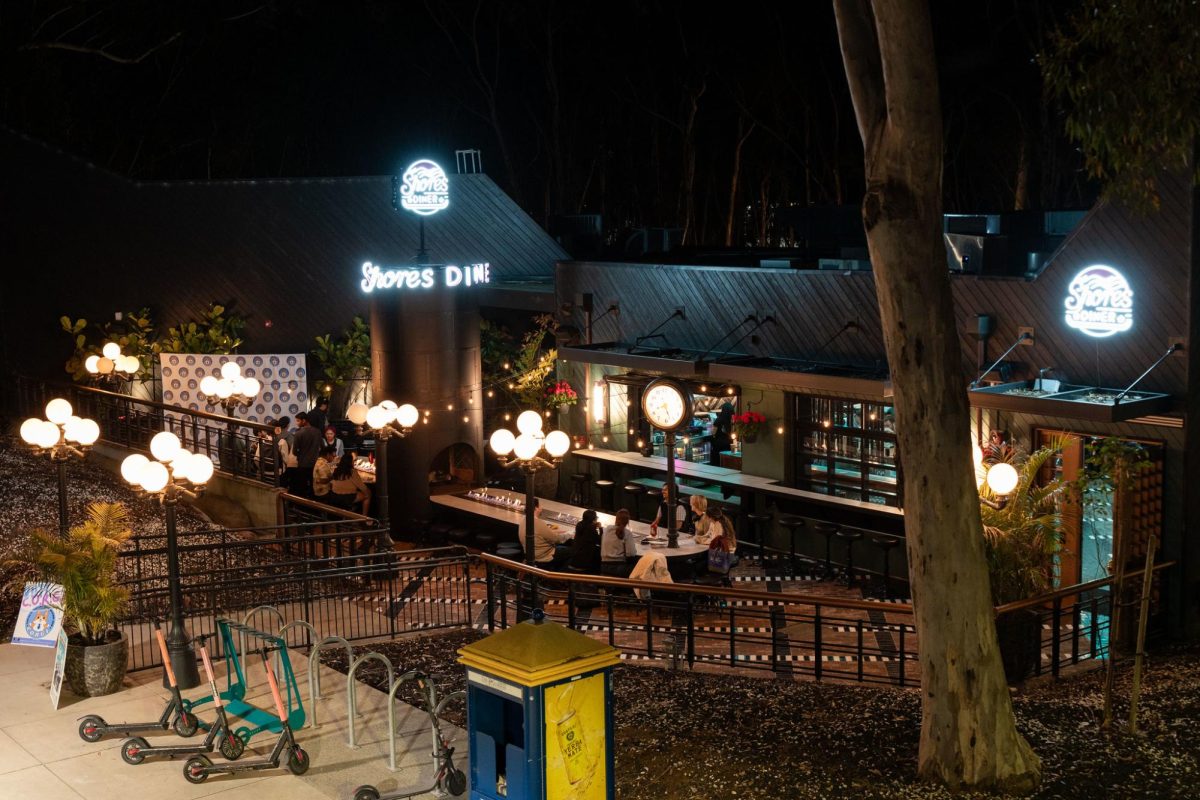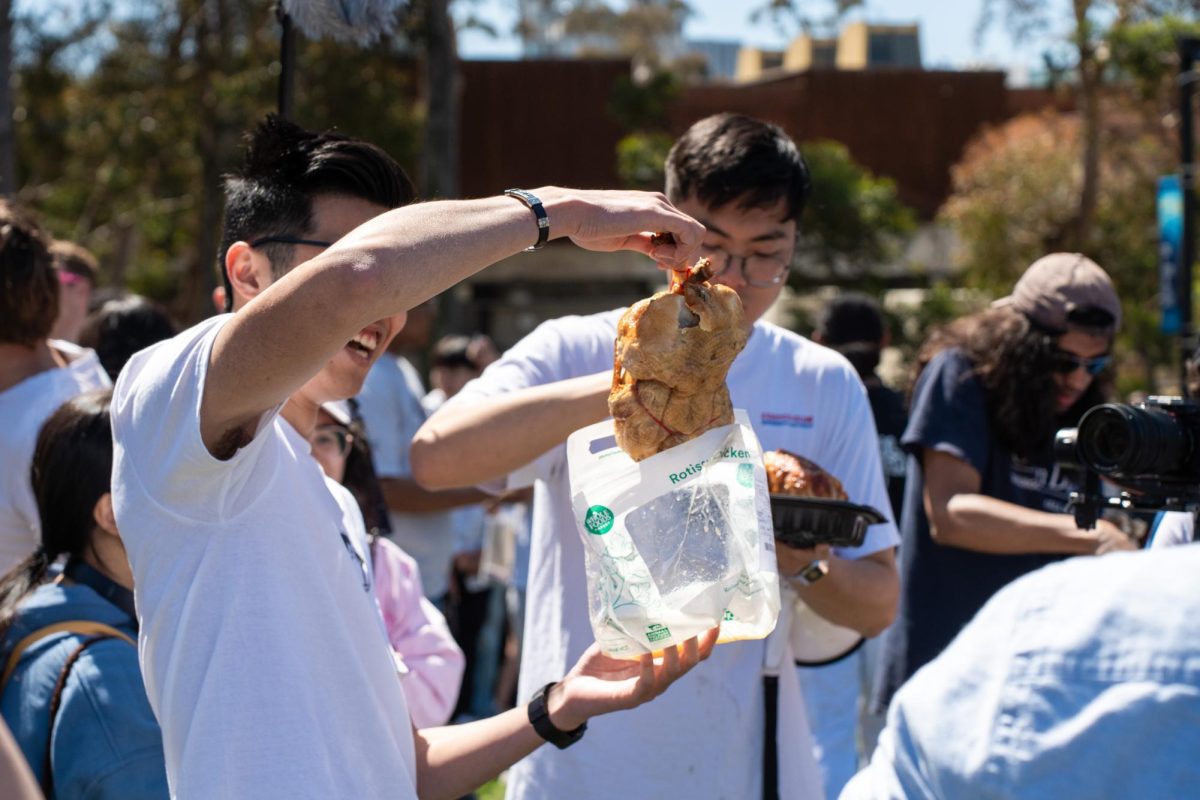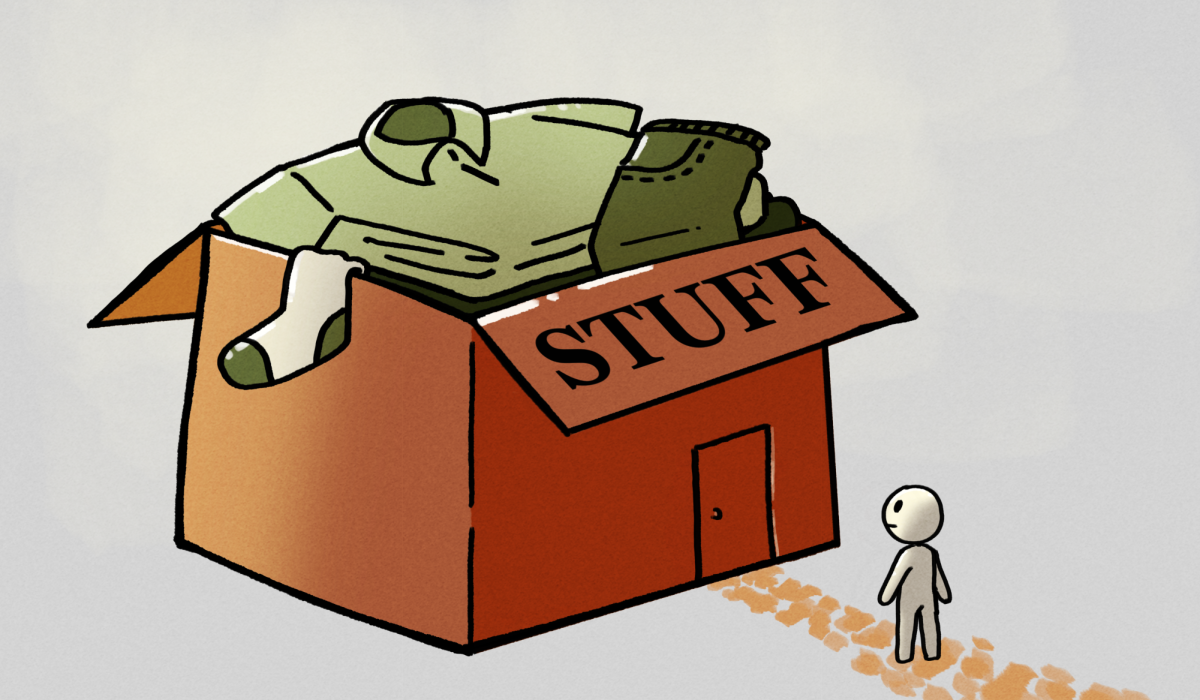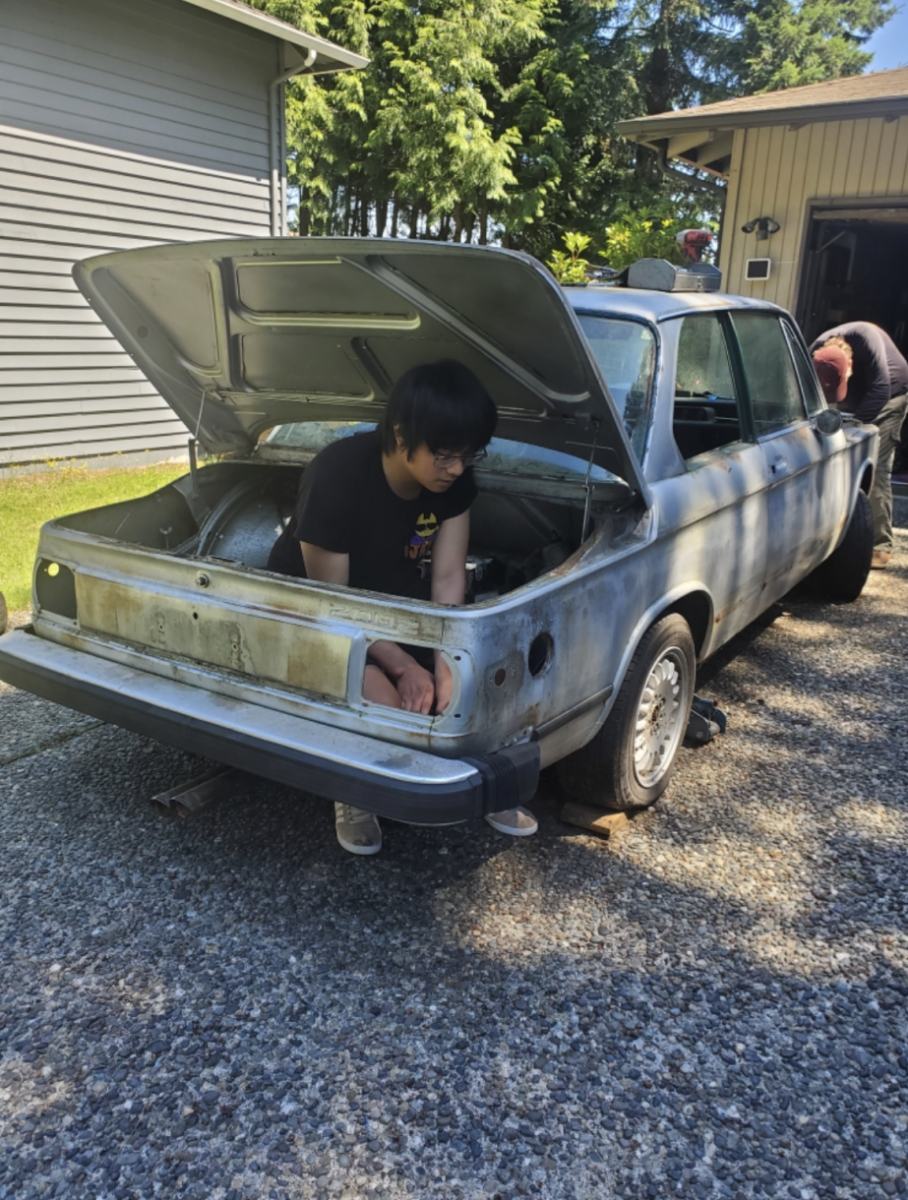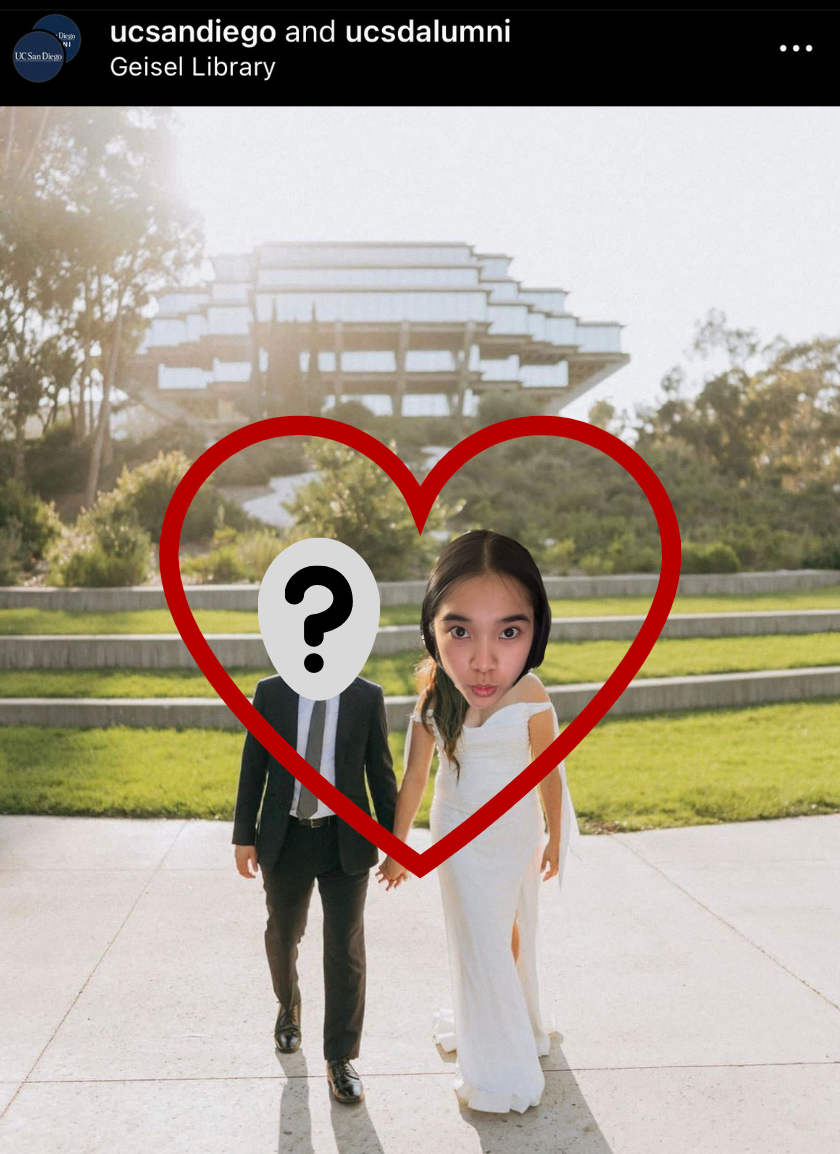
After the grand opening of the Sustainability Resource Center last November, members of the Student Sustainability Collective and Campus Sustainability administrators have not yet come to an agreement over how to share the space.
According to SSC student director Rishi Ghosh, the center was conceived two years ago when students approached university administrators with hopes to begin the project. When student activity fees were raised last Spring Quarter — providing the SSC with an additional $2.34 per-student per-quarter for projects and staff — SSC members were under the impression their new efforts would be housed by the collaborative space.
Since then, however, university staff and student leaders have disagreed on the role of students in the center — leaving the SSC without the opportunity to utilize the SRC on a consistent basis.
“The spirit of the referendum, the way we advertised it, was that the funding was for students working right in the new SRC,” A.S. President Utsav Gupta said. “That was the context in which we had all these discussions with the administration — until it totally flipped. It was a bait-and-switch.”
According to the SRC’s Web site, its original intention was to “house UCSD’s sustainability staff and the student-funded and -run SSC.”
As no form has yet been signed indicating an understanding of the two groups’ control of the center, however, only the CSS currently has full access the space.
In the months following the student-fee referendum, plans for the center were arranged verbally between students and staff. University Centers designated a space for it in Price Center.
The administration agreed to fund renovations to the space while students and staff negotiated the terms of how the space was to be shared between advocates. The agreement was to be authenticated with the signing of a Memorium of Understanding by the SSC and CSS, to establish the presence of each group in the space.
According to Ghosh, SSC members hoped to have the MOU signed prior to the center’s opening last November.
“We were of the opinion all the hard work was done,” Ghosh said. “We just needed to sign the MOU.”
However, the SCC has failed to come to an agreement with Campus Sustainability Coordinator Margaret Souder since then; as a consequence, Souder has not allowed students to use the space freely.
According to Souder, the two groups have been unable to reach a final agreement because representatives from the SSC continue to change their stance on the details of the MOU.
“We’ve had several meetings and were all in agreement,” Souder said. “But then the SSC would have come back with new ideas and wouldn’t agree anymore.”
New changes were proposed over multiple meetings, according to Souder.
“In the details is where it falls through,” Souder said. “We come up with an agreement and everyone is happy. Then, a few people want changes, and we begin discussions again and come to a new agreement. In the last few meetings, though, an agreement hasn’t been reached.”
Members of the SSC have expressed frustration with the discussions. Ghosh said that Souder has recently retracted promises she outlined verbally in original discussions of the MOU.
“It actually was worked out earlier,” Ghosh said. “It’s just that it was worked out verbally. We were made specific promises. [Souder] had consistently told us her supervisors were on board. It was not as if we just stormed in. We had gone through the correct avenues. We are well aware of how to work with the administration.”
As it stands, only Souder and Campus Sustainability Analyst Kristin Hansen hold a permanent office in the center. Students and community members alike are permitted to schedule meetings or events in the center, but are not allowed occupy the space as joint directors.
“I would love to make sure there is really good access for anyone that doesn’t exclude everybody,” Souder said. “We want a space where anyone and everyone feels welcome. Ultimately, we’re running it by my bosses; I want to make sure they’re comfortable. The administration has committed a lot of money and effort, and I want to make sure the university is happy.”
While SSC members are able to reserve the SRC for weekly meetings, they are unable to use the center as a main office.
“We have no functional office space or meeting place,” Ghosh said. “There is no public space where we can display our projects. We can’t put anything on the shelves [in the SRC]. We can’t put anything on the walls. We can only be there at certain hours. We’re forced to run our programs with no central locations.”
Various programs the SSC is attempting to house in the SRC include an extension of the TritonBikes rental program, along with an e-waste drop-off center that would properly dispose of broken electronics.
“We want to set up an e-waste center,” Ghosh said. “We can’t do that project right now, though, since we have no space to publicize to students. We aren’t even allowed to enter the space.”
Ghosh said that the SSC feels there is even difficulty setting up meetings under the current arrangements.
“We don’t get preference in the scheduling process,” Ghosh said. “[Souder] can schedule over us if she finds out when our meetings are. She’s treating us as a non-involved third party who she just lets use the space.”
Souder holds that the center has been very productive and useful during the time it has been open, despite the SSC’s lack of a role in managing the center.
“It’s already proven to be great,” Souder said. “The space is already being well-utilized by many, including students, faculty and staff.”
The SSC is currently working with the A.S. Council to expedite the process to reach an MOU.
“We’ve decided we need to stop negotiating with [Souder] directly,” Ghosh said. “Our talks weren’t productive. We were going backwards. She kept rescinding promises. Now we’re working through A.S. and various vice chancellors, who are her supervisors. They can make it clear an anti-student activity will not be tolerated at UCSD. If things don’t go well, we won’t hesitate to meet with the chancellor herself.”
Gupta said he supports the SSC’s efforts to attain a physical place in the SRC.
“The SRC is part of A.S.,” Ghosh said. “The students in the SSC are employees of A.S., which is a department of the university. We’re going to make sure they’re treated with respect — the same respect any administrator would receive. It should be two departments working together.”
Gupta said he intends to re-open discussions between the SSC and CSS, bringing in higher administrators including Souder’s supervisor Assistant Vice Chancellor Russell Thackston. Gupta said he also plans on meeting with the University Centers Advisory Board to discuss the current state of the SRC, along with its intended purpose.
“We had met with the University Centers Advisory Board,” Gupta said. “They reviewed the space agreement with the intent that students were to share in the space. I’ve spoken with the UCAB chair. We’ll be presenting to them sometime in the next few weeks.”
Readers can contact Ayelet Bitton at [email protected].


